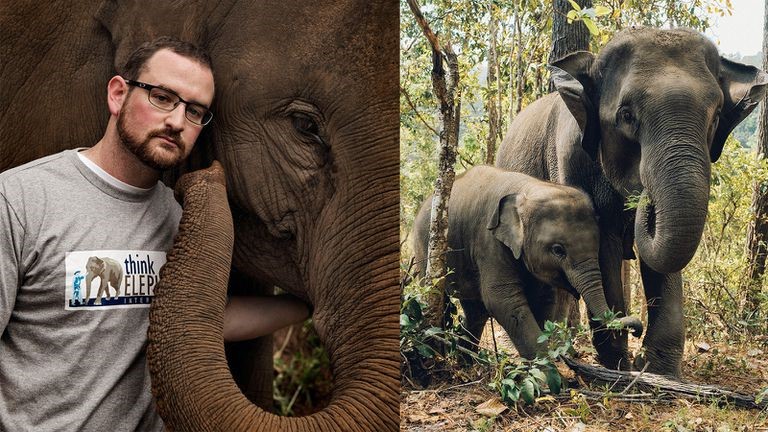American researchers unlocking keys to Thai elephant behaviors
American researchers unlocking keys to Thai elephant behaviors
วันที่นำเข้าข้อมูล 26 Oct 2023
วันที่ปรับปรุงข้อมูล 26 Oct 2023

A doctoral candidate at the City University of New York has published a study on the problem-solving abilities of elephants in Thailand in hopes that the knowledge can be used to help them survive as mankind continues to encroach upon their natural habitat.
“This is the first research study to show that individual wild elephants have different willingness and abilities to problem solve in order to get food,” said Sarah Jacobson, a doctoral student who was the lead author of the study. Titled “Innovating to solve a novel puzzle: wild Asian elephants vary in their ability to problem solve,” the paper was published in the journal Animal Behaviour.
“This is important knowledge, because how animals think and innovate may influence their ability to survive in environments that are rapidly changing due to human presence,” Jacobson said.
Only about 3,500 elephants remain in the wild in Thailand, most in protected areas, while another 3,800 are domesticated. That is a marked drop from over 100,000 about 125 years ago when most of the Kingdom was still covered with forests. Today, just under 40 percent of Thailand is forest area, a result of the expansion of agriculture, towns and cities and modern development.
But the elephant is a symbol of Thailand and Thais are working hard to find new and better ways to protect and even increase the number of elephants in the wild.
“Conflict involving humans and elephants is increasing due to loss of natural habitat and agricultural encroachment into what is left of it,” Dr. Joshua Plotnik, a psychology professor with the CUNY Graduate Center and Hunter College, told the Scitechdaily website.
“Investigating innovation and problem-solving in elephants can inform our understanding of wild elephant cognitive flexibility and its potential impact on conservation management and human-elephant conflict mitigation,” Plotnik added.
The website reported that the researchers observed 77 elephants using camera traps. Three puzzle boxes containing fruit were left for the pachyderms and the researchers observed and analyzed how and if different elephants unlocked the various boxes.
“There were individual differences in how innovative the elephants were. The researchers found that elephants who interacted with the puzzle boxes more frequently and with greater persistence were more successful in retrieving food from all three differently configured compartments,” Scitechdaily wrote.
Photo courtesy of https://hunter.cuny.edu/
NewsRelated
NewsRelated
สถานเอกอัครราชทูต ณ กรุงวอชิงตัน
Consular Office (ฝ่ายกงสุล)
2300 Kalorama Road, N.W. Washington, D.C. 20008
Office Hours
Monday - Friday 09.00-17.00 hrs.
Official Holidays
Official Holidays